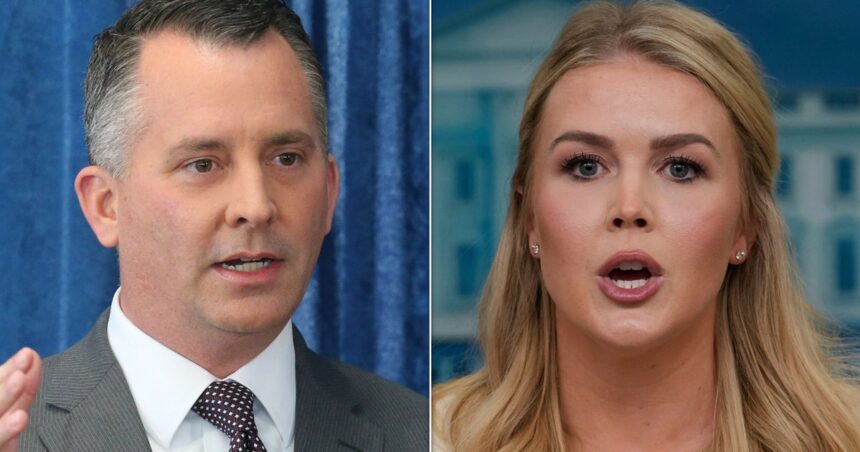Former Rep. David Jolly (R-Fla.) recently criticized the lack of critical thinking in the United States, citing an incident involving White House press secretary Karoline Leavitt. Leavitt had claimed that U.S. District Judge James E. Boasberg, appointed by former President George W. Bush, was a “Democrat activist” for ordering the halt of deportations to El Salvador under the Aliens Enemies Act of 1798.
The clash between the Justice Department and Boasberg escalated when Leavitt argued that the legal system was biased against President Donald Trump, who had received numerous injunctions during his presidency. Jolly condemned Leavitt’s lack of critical thinking, pointing out that she was also an activist, like many in the Trump administration.
Boasberg, despite being appointed by Obama in 2011, was confirmed by the Senate with a unanimous vote and initially appointed by Bush in 2002. He has made decisions that both favored and challenged Trump, such as dismissing a lawsuit for Trump’s tax returns and issuing lenient sentences to Capitol riot defendants.
Jolly emphasized the importance of critical thinking and highlighted the constitutional crisis facing the country, particularly since the election of an “insurrectionist.” The lack of critical thinking in the current administration, according to Jolly, is indicative of the ongoing challenges to upholding constitutional principles.
The incident involving Leavitt and Boasberg underscores the deep divide in American politics and the need for a return to thoughtful, principled governance. As the debate over constitutional integrity continues, it is crucial for leaders and citizens alike to engage in critical thinking and uphold the values that define the nation. A new study has shed light on the impact of social media on mental health, revealing that excessive use of platforms like Facebook, Instagram, and Twitter can have negative effects on well-being.
The study, conducted by researchers at the University of California, Berkeley, analyzed the social media habits of over 2,000 participants and found that those who spent more time on social media reported higher levels of anxiety, depression, and loneliness.
One of the key findings of the study was that the constant comparison to others on social media can lead to feelings of inadequacy and low self-esteem. Seeing carefully curated posts of friends and celebrities living seemingly perfect lives can create unrealistic expectations and a sense of FOMO (fear of missing out) among users.
Additionally, the study found that excessive use of social media can lead to decreased real-life social interactions and feelings of isolation. Spending hours scrolling through feeds and liking posts can take away time that could be spent engaging in meaningful face-to-face interactions with loved ones.
The researchers also noted that the addictive nature of social media, with its constant notifications and updates, can disrupt sleep patterns and lead to a decrease in overall well-being.
While social media can have positive aspects, such as connecting with friends and family members who are far away, the study highlights the importance of using these platforms in moderation and being mindful of how they impact mental health.
To combat the negative effects of social media, the researchers recommend setting limits on usage, taking breaks from platforms, and engaging in activities that promote mental well-being, such as exercise, meditation, and spending time in nature.
Overall, the study emphasizes the need for individuals to be mindful of their social media habits and to prioritize real-life connections and self-care to maintain mental health in the digital age. By being aware of the potential pitfalls of excessive social media use, individuals can take steps to protect their well-being and foster a healthier relationship with technology.






